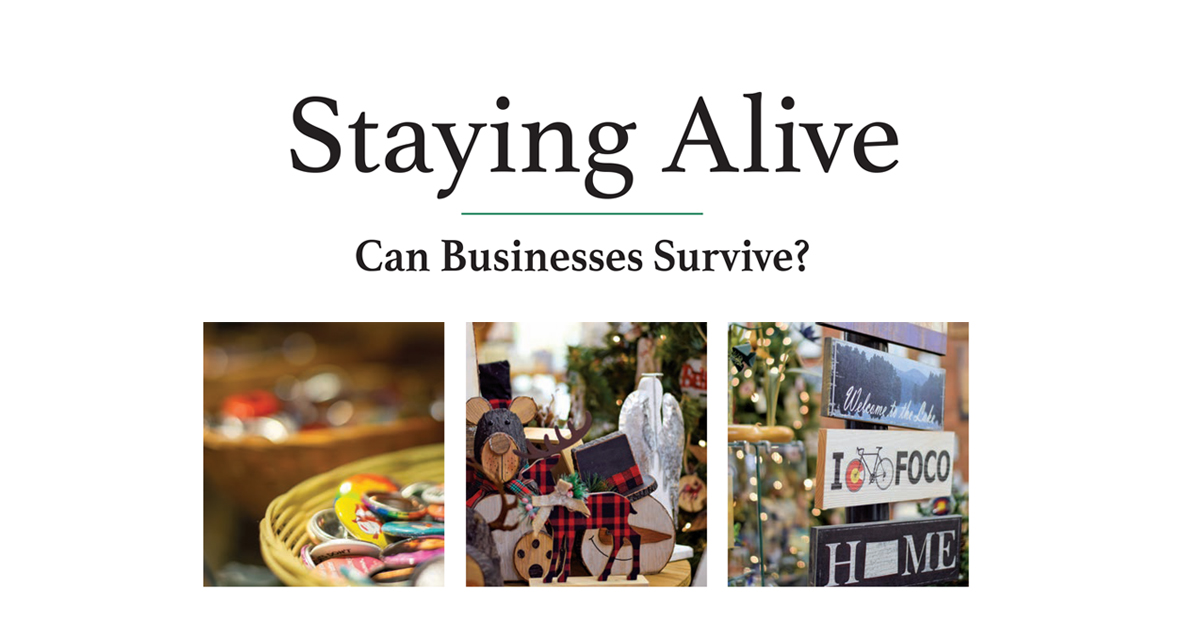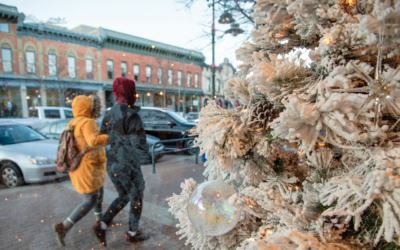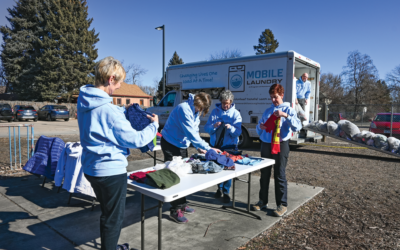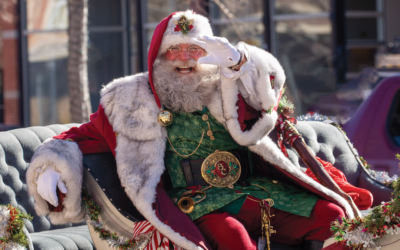Can Businesses Survive?
By Dan England | Photos by Jordan Secher
Christie Rodgers pauses at the question, so much so that you can hear her heavy breathing through the phone, as if she was a prank caller from the 1970s.
How, exactly, does she think this holiday shopping season will go? Rodgers is the owner of Alpine Arts and she stops to think about it. It’s not an easy question, to be fair, especially given that it’s doubtful there will be a COVID-19 vaccine by Christmas, there also won’t be many, if any, holiday events in Northern Colorado, and she’s not sure customers will want to wait outside in the cold, Colorado winter air to keep them properly distanced inside her store. But there’s something else keeping her bottled up. She had just returned from a meeting with other downtown business owners all worried as well about the season, a well-documented time when businesses either make it or break.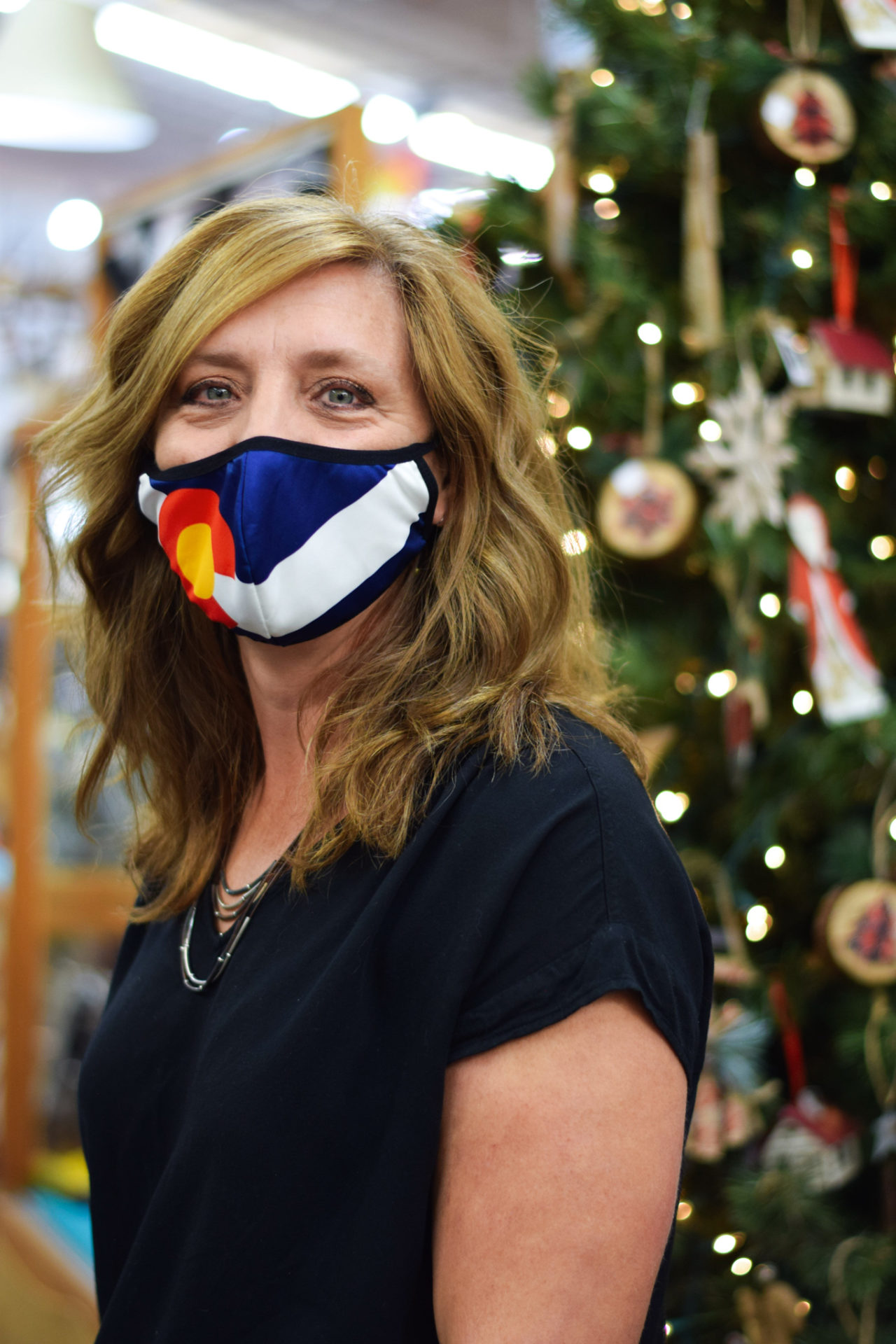
“We all agreed to say only positive things,” Rodgers says, especially to the media. “So, I am choosing the words cautiously optimistic.” The holidays are so important, in fact, that store owners treat it like a White House press conference, checking themselves not to say anything that could spoil it even a little bit. Mike O’Connell felt the stress of the holidays as a part of the furniture company he owned. The company was part manufacturing plant and part retail in downtown Fort Collins, in a store where the Little Bird Bakeshop now nests. He now runs the Larimer office of the Small Business Development Center of Colorado.
“[A] big, big chunk of your annual revenue is in the holiday season,” O’Connell says. “That’s the gravy time.”
Rodgers’ cautious optimism, even if it a little canned, is warranted, regardless of the fact that the virus forced her to first shun, then limit, customers, which doesn’t seem like good business for a gift store in downtown Fort Collins. But to that point, Rodgers actually made money off COVID-19 and didn’t have to pay any licensing fees. When you go to her (brandspanking new) website, a masked model looks at you, her face mask patterned in cool, colorful and kind of funny designs, such as aliens kidnapping cars, or tie-dye, or the Colorado flag, or kissy lips.
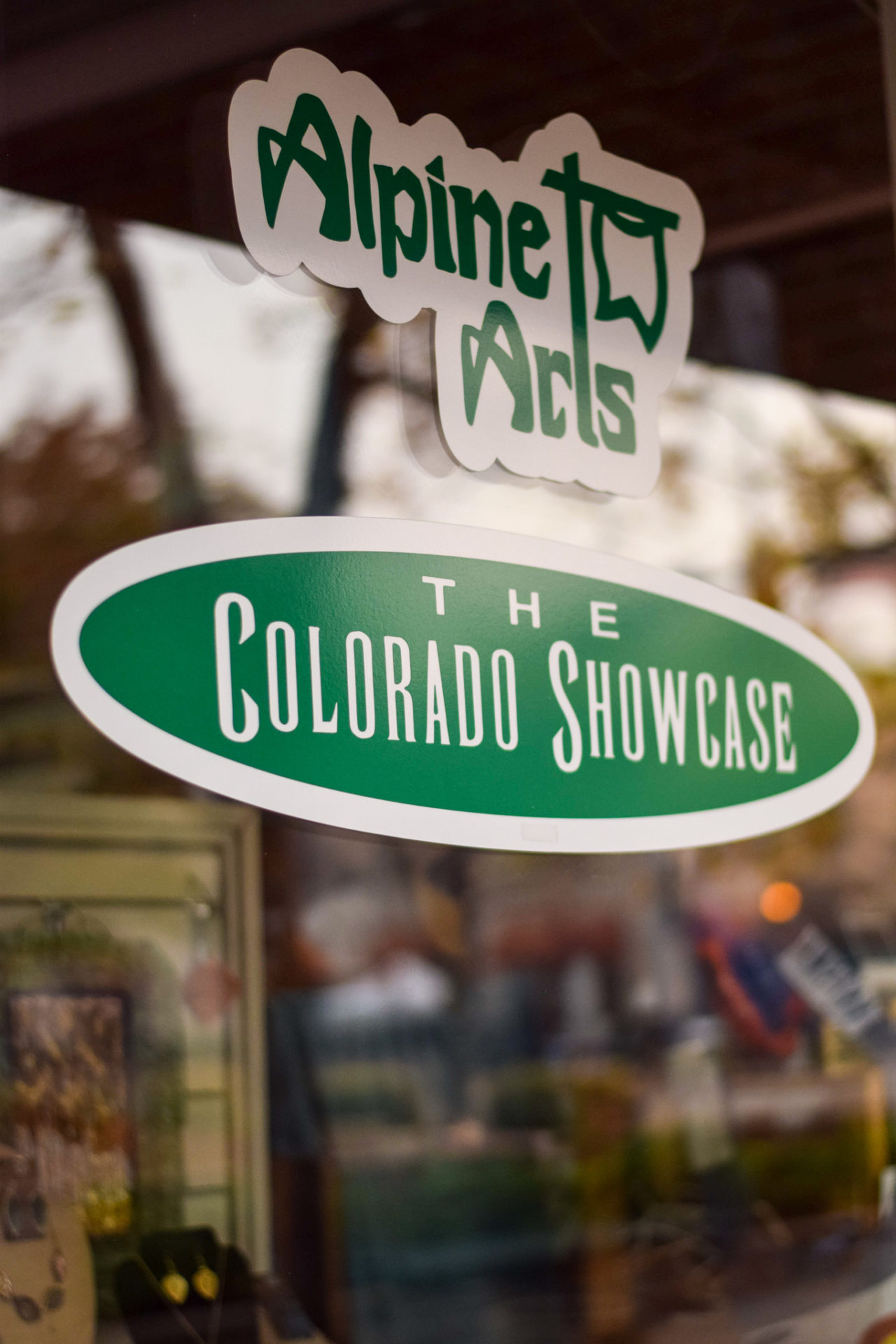 “People began asking for masks, and I realized they considered them an accessory, something that would match their moods and outfits,” Rodgers says. “They started selling faster and faster. They even became a great souvenir.”
“People began asking for masks, and I realized they considered them an accessory, something that would match their moods and outfits,” Rodgers says. “They started selling faster and faster. They even became a great souvenir.”
Rodgers also changed up her business to help ensure “contactless delivery,” which is most assuredly a phrase you’d never heard before the coronavirus. She hopes and believes shoppers will get out early this year to avoid crowded stores. And most of all, she sees it as a duty to give shoppers something to think about other than a virus that has not only killed more than a million but robbed us of nearly everything fun this year. She hopes shoppers will respond in kind.
“It’s a great unknown, but I am preparing for this year,” Rodgers says a month before Halloween. “I want people to have something to look forward to. I want them to know there’s something exciting and something positive coming.”
USING THE NEWFANGLED INTERNET
As new-age and forward-thinking as a website may seem, some gift stores in this story avoided them, because they don’t really mesh with what makes a gift store fun. Gift stores, after all, are made for browsing in person: Until you see that toilet seat figurine with someone’s name on it, you won’t know you’ve got the perfect Christmas gift.
“It’s very spontaneous and very personalized stuff,” says Howard Wasserman, who owns Curiosities with his wife, Amy Martin, in downtown Fort Collins. “People tend to buy gifts on impulse.”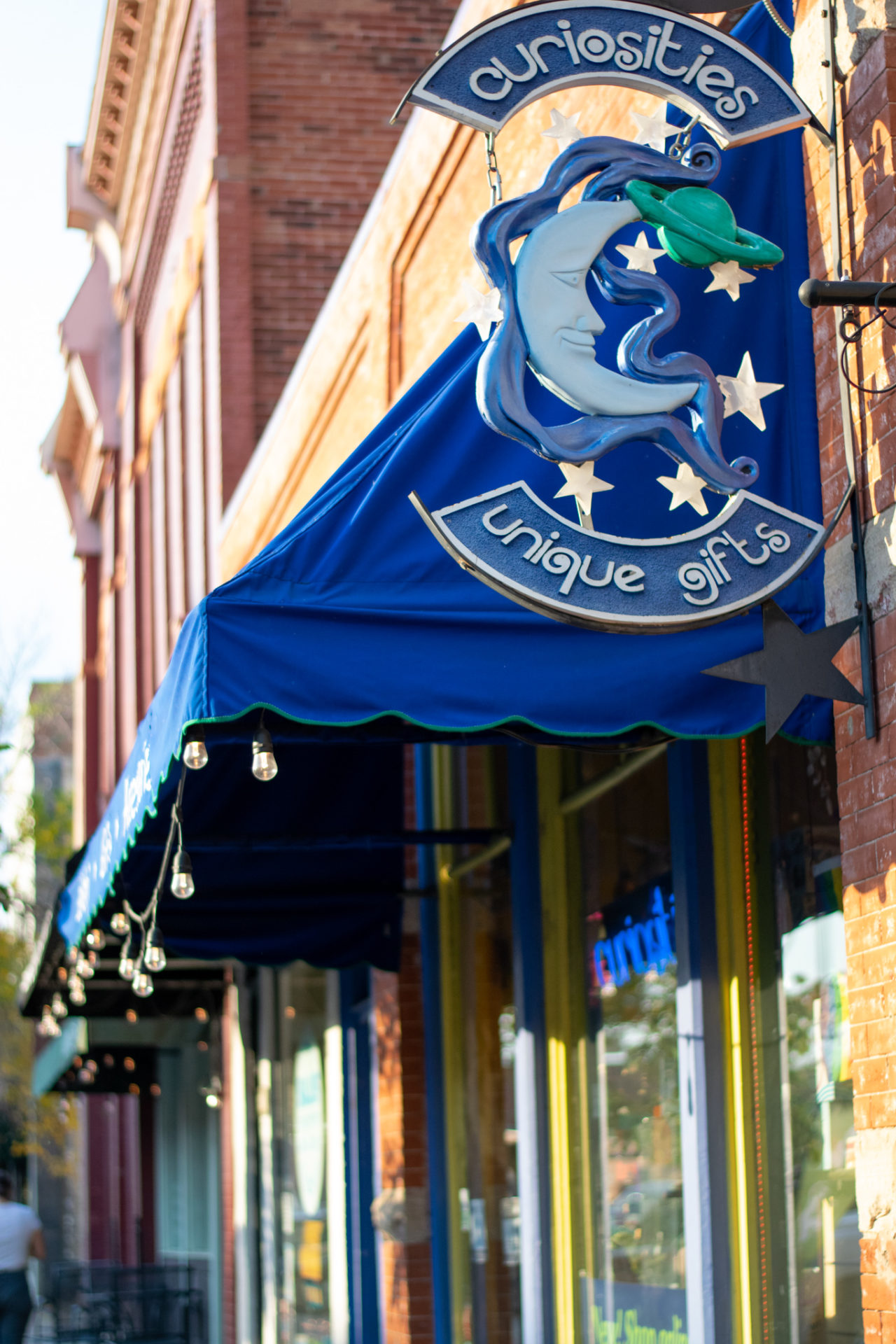
Now the coronavirus turned impulsiveness into a sick luxury, like a bubble bath hot tub in your RV, and Wasserman had to adjust. He began sending people away for the first time in the 25 years in business. He can’t imagine doing the same thing for the holidays, which in the past was his biggest quarter of revenue, and yet, he may have to so that they stay properly distanced. This is why he built his first website this summer.
“I hope people can look at the site and decide what they want before they get here,” he says. And maybe they could find a way to heat the area outside the store, Wasserman speculates, or get a cup of coffee and walk around while they wait for the crowds to thin out.
“People will either wait or they won’t,” Wasserman says. “I hope it won’t be too bad for us. I can only hope they can make it back before the end of the Christmas holiday season.”
That’s why Rodgers “scrambled” to get a website up this summer as well, took pictures of staff in masks and tried to remain as thoughtful and creative as she’s ever been. She’s willing to leave packages outside her door, deliver locally or bring gifts out to a car.
“This is my first Christmas with a website,” she says. “You have to rethink things you’ve done in the past.”
She also may not offer quite as much Christmas in her store this year. She thinks offering more gifts with winter or Colorado snow themes might sell better over the long, cold season.
“I have to spend more cautiously this year,” Rodgers says. “I need gifts without as much of a shelf life.”
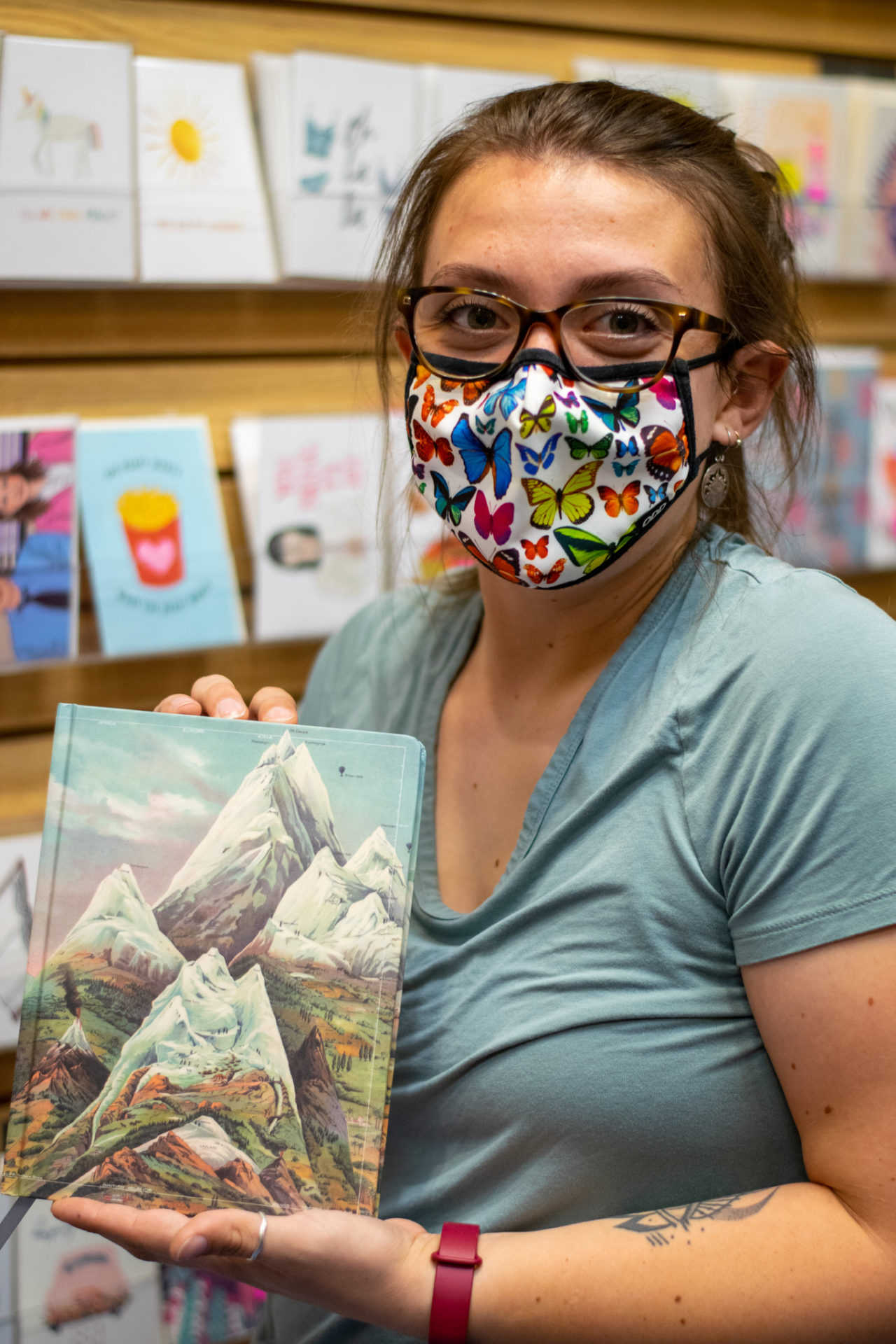 SCRAMBLING TO SURVIVE
SCRAMBLING TO SURVIVE
O’Connell says his office skipped holiday prep classes this year because his workers were so busy helping businesses survive. The office does two things: It helps people start a business or helps keep existing businesses going. The office helps existing businesses more, but only by a bit, with a 55/45 split. This year, however, it’s been more of a 70/30 split. Part of that was simply because existing businesses needed help with the complicated COVID-19 federal relief funds. But it’s also just been that kind of a year. Normally the business councils see close to a
thousand business owners in a year statewide.
“We’re already at 1,050, and we’re just 75 percent through the year,” O’Connell says.
O’Connell says they’ve tried to get businesses to think differently, from building websites to changing the products they offer and trying to capture a different kind of customer to make up for the reduced sales from their steady groups.
“Can you modify a product?” O’Connell says. “Can you go to more of a pickup model?”
Still, it’s been difficult. The Fort Collins Business Association went on hiatus after many of the events that funded it had to be canceled. Those events were typically “a big revenue shot in the arm,” O’Connell says, and the annual traditions of holiday lighting, Trick-Or-Treating or even a football game provided large swaths
of opportunity for stores, bars and restaurants. Most, if not all, of those opportunities are gone.
Places other than retail stores are suffering as well. The Colorado Model Railroad Museum, a Downtown Greeley attraction that features an amazing assortment of model trains that wind around intricate settings of days gone by (including a building fire with smoke being doused by a fire engine with blazing sirens), reopened in August after closing in March and missing most of the summer. Summer is its biggest moneymaker, as kids are out of school, but the holiday break is its second-highest time of the year, with an average of 3,000 guests. The museum added an online ticketing system and reduced its capacity to 20 tickets an hour. Soon after they opened, they saw 80 visitors on a Saturday. Normally they would have 250.
“But, you know, it’s something,” says Michelle Kempema, executive director
of the railroad museum. “This is a major blow to us.”
Greeley’s Downtown Development Association saw COVID as a challenge to get creative, and the businesses downtown responded with a plan to close 8th and 9th streets to traffic, set picnic tables on those roads and allow customers to have open containers in addition to food or whatever else they wanted to enjoy. The association also enhanced some lighting downtown and offered skeleton versions of its Friday Fest music series.
Now the talk is to find ways to brighten downtown without those summer activities. The city will continue to light up Lincoln Park, but perhaps that lighting can stretch across the street to those two blocks. The DDA, much like other downtowns, will continue to offer its Holiday Open House Saturday after Thanksgiving, which gives shoppers a Bingo card they can mark when they visit a store. There will also be a static lighting display at the large downtown Island
Grove Regional Park, to replace the Parade of Lights that draws thousands that same Saturday after Thanksgiving. The static display will be available all weekend and encourage people to tour it in their cars.
“Our support is in marketing, so we need to keep pushing that Downtown Greeley is the place to be,” says Bianca Fisher, Greeley’s executive director of the DDA. “We need to keep reminding people that just because of COVID, Christmas is not canceled.”
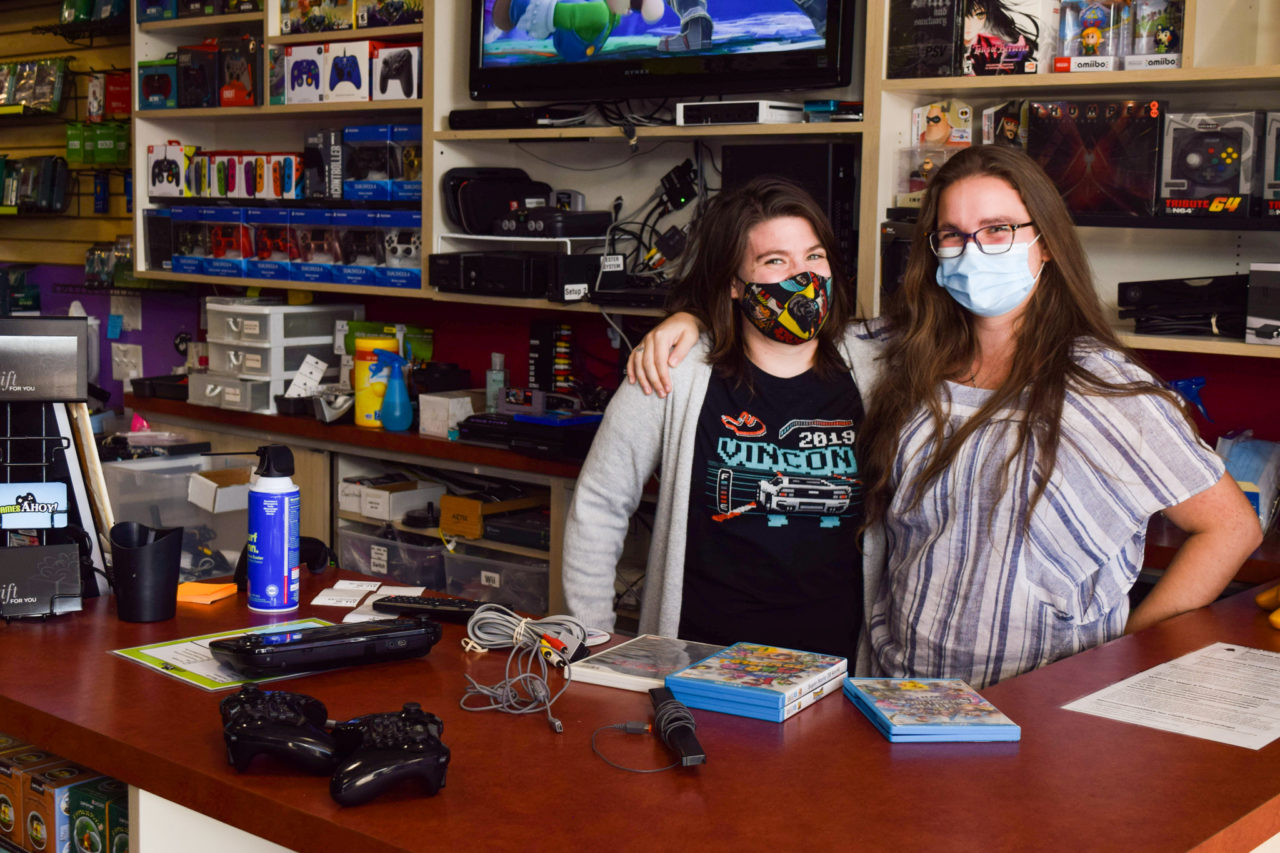 SANTA ZOOMS ON MORE THAN HIS SLED
SANTA ZOOMS ON MORE THAN HIS SLED
Did you know Santa has a Zoom account?
The railroad museum didn’t know that until this year, either, but now it’s offering Santa over Zoom, so even the Big Guy can stay socially distanced. This replaces the days the museum would host Santa, which were extremely popular, and saves the volunteer who played him, an at-risk elderly gentleman, from a possible case of COVID-19.
“I’ll still wear my conductor uniform, and I will take the family back for a family photo, and then we are so cool that we can Zoom straight into his workshop,” Kempema says.
The railroad museum also partnered with the Greeley Philharmonic, as both organizations have their top fundraiser around Christmas, to create a virtual
variety show on Nov. 17. Kempema hopes other organizations will join the show, and they also installed a nativity scene in Cornerstone Church, with perhaps some string players next to it as part of the show. The museum will probably decorate more than usual.
Even stores that were successful during the quarantine, such as the video games store Games Ahoy!, with two locations in Loveland, needs to be creative during the holidays. Adam Ray, the owner, thinks he’ll have a sale for a few days before or after Black Friday.
“We don’t get a massive crowd anyway, but it does get packed,” Ray says. “So, we might just avoid the weekend all together.”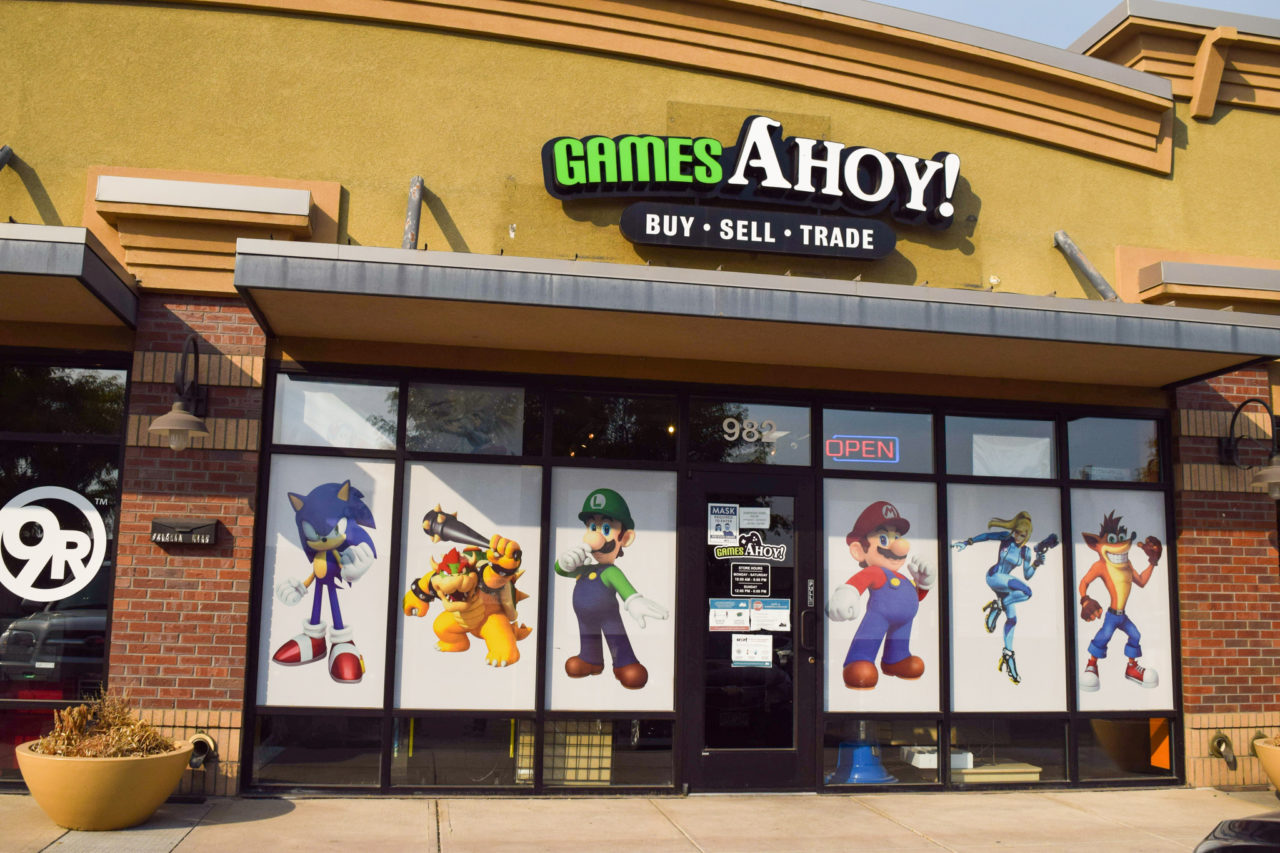
Video game sales were through the roof during the quarantine— what else are people supposed to do, after all—and so his business is doing well, and he’s looking forward to the holidays. He even sold consoles online during the month he was closed in April with the help of employees on the PPP program.
“It was pretty easy to make money off our overstock in the store,” Ray says, “and once we opened back up, it was boom bang bang.”
Wasserman will try to fit as many as he can in his store and stay safe, so he thinks he’ll keep his doors open, even during the chillier days.
“I’ll tell my staff to bundle up,” he says. “I’m trying to give our customers many options. I don’t know if people’s behavior will change. Sometimes it’s the last couple of weeks that are the busiest.”
All that planning gives Rodgers some hope for this season, and she’s not just saying that because she’s supposed to this year.
“I hope we can all find ways to make up for the holiday events going away,” she says. “We will still have Christmas lights, and people will see those and maybe come down to feel that spirit, even without a ceremony this year.”
Dan England is a freelance writer who lives in Greeley. To comment on this article, email letters@nocostyle.com.

